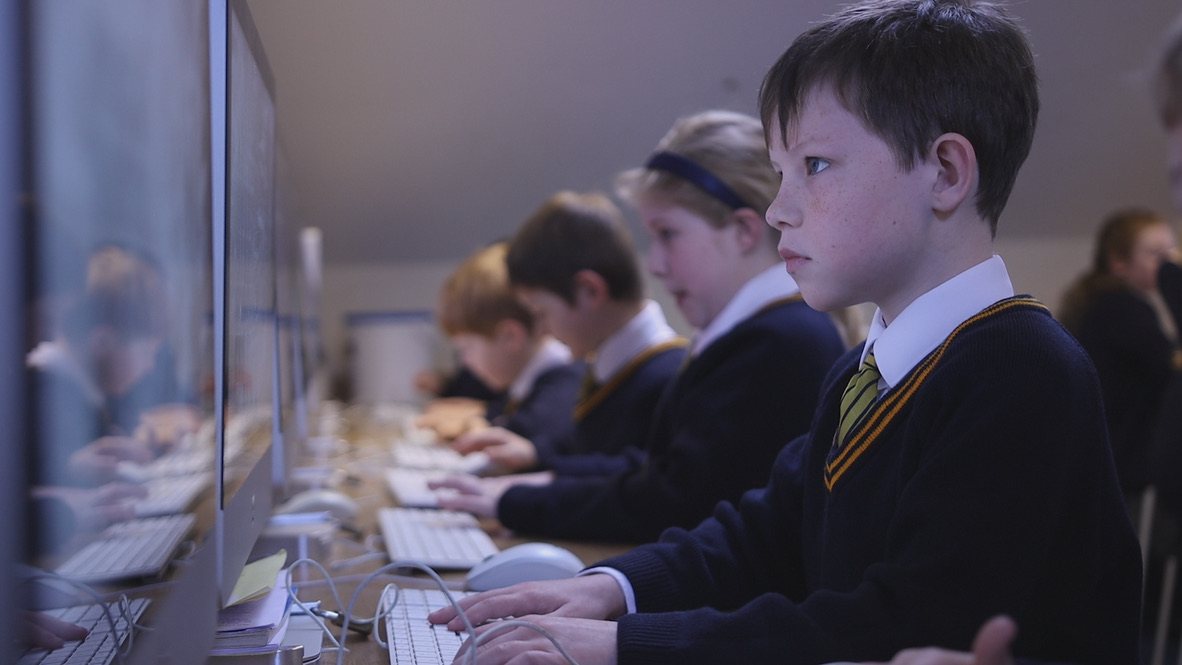
At Churchtown, it is our aim to develop the code breakers, program makers and digital leaders of tomorrow. Our children learn how to manage, adapt and create their own digital content through exciting activities such as programming and coding. Our digital literacy is delivered in an environment which promotes an understanding of how the digital world works, and how they can use technology, online and offline, both safely and responsibly. We prepare our children for the creative, exciting and constantly developing digital future that awaits them.
Technology is a wonderful tool in helping to transform learning as well as develop engagement in the classroom. Our children have numerous opportunities to apply their developing computing skills across a range of devices and scenarios. All of our children have access to weekly sessions in our ICT suite, where lessons focus on key apsects of the new Computing curriculum. Furthermore, our children have access to iPads in class to support their cross curricular learning. Children in Years 5 and 6 benefit from having 60 iPads per year group, which they use for a range of topics in the classroom to promote independence in their studies.
Computer science
The core of computing is computer science, in which children are taught the principles of information and computation, how digital systems work and how to put this knowledge to use through programming. In school, we use a range of devices to achieve this, including desktop computers, iPads and programmable robots such as Beebots and Bigtraks. We also use software such as 'Scratch' as a tool to enhance the teaching of computer science.
Information technology
Information Technology deals with the creative and productive use and application of computer systems. Building on our computer science teaching, we allow our children to use information technology to create programs, systems and a range of content. We encourage a cross curricular approach to IT, allowing opportunities for our children to present their work digitally in a range of formats and for a range of audiences.
Digital literacy
We ensure all children can use technology to communicate and collaborate effectively in many different ways. Through this strand, we teach our children to become digitally literate by being able to use, develop ideas and express themselves through information and communication technology. By doing so, we aim to make all children aware of their digital footprint and ready to transfer these skills into the future workplace as active paritcipants in a more digitally connected world.